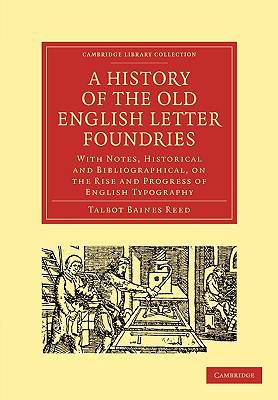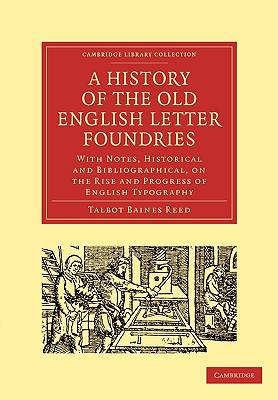
- Afhalen na 1 uur in een winkel met voorraad
- Gratis thuislevering in België vanaf € 30
- Ruim aanbod met 7 miljoen producten
- Afhalen na 1 uur in een winkel met voorraad
- Gratis thuislevering in België vanaf € 30
- Ruim aanbod met 7 miljoen producten
Zoeken
A History of the Old English Letter Foundries
With Notes, Historical and Bibliographical, on the Rise and Progress of English Typography
Talbot Baines Reed
€ 95,45
+ 190 punten
Uitvoering
Omschrijving
Talbot Baines Reed wrote in a period of transition when hot metal typesetting and offset printing were transforming the scale and scope of printing. In the previous 350 years, England had experienced civil war and started the Industrial Revolution. The dissemination of printed information and learning is inextricable to this history, and the art with which this was done is a quintessential part of English culture. Reed is distinctly aware of the great debt that his contemporaries had to the early typographers (notable among them William Caslon - considered the first great English typographer - and John Baskerville), and everywhere in his work is this shown in his meticulous and unstinting presentation of the fascinating details of their artistic exploration and expression. Modern readers will enjoy the technical and historical insight this work affords, and also find the style and presentation fresh and engaging.
Specificaties
Betrokkenen
- Auteur(s):
- Uitgeverij:
Inhoud
- Aantal bladzijden:
- 432
- Taal:
- Engels
- Reeks:
Eigenschappen
- Productcode (EAN):
- 9781108012973
- Verschijningsdatum:
- 20/05/2010
- Uitvoering:
- Paperback
- Formaat:
- Trade paperback (VS)
- Afmetingen:
- 170 mm x 244 mm
- Gewicht:
- 684 g

Alleen bij Standaard Boekhandel
+ 190 punten op je klantenkaart van Standaard Boekhandel
Beoordelingen
We publiceren alleen reviews die voldoen aan de voorwaarden voor reviews. Bekijk onze voorwaarden voor reviews.











